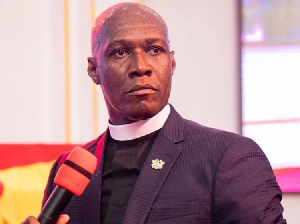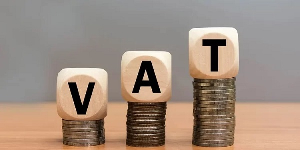In the realm of politics, winning elections and retaining power is the ultimate goal for any political party. Often, there is a tendency to believe that elections are won solely by the strength and effectiveness of the opposition.
However, a closer analysis reveals that it is not always the opposition that emerges victorious; rather, it is the failures and shortcomings of the ruling government that lead to their defeat. My writing aims to explore the notion that "oppositions don't win elections, governments lose them" and invoke the attention of the NPP to the factors that contribute to a government's downfall, with a specific focus on the crucial last year and a half before an election.
The Power of incumbency:
Being in power grants a political party significant advantages, including access to resources, institutional control, and a platform to implement their policies. However, with great power comes great responsibility, and it is essential for governments to use their incumbency advantage wisely. The electorate expects a ruling party to govern effectively, address their concerns, and deliver on their promises. When governments fail to live up to these expectations, they risk losing the faith and support of the people.
Public perception and trust:
One fundamental element that influence electoral outcomes is public perception and trust in the government. A government's success is closely tied to its ability to build and maintain trust with the electorate. Citizens want to feel that their concerns are heard, that their welfare is prioritized, and that their government is transparent and accountable. If a government is perceived as corrupt, dishonest, or disconnected from the people, it significantly diminishes their chances of re-election.
Effective governance and policy implementation:
Governments are elected to govern and make positive changes in society. Their ability to effectively implement policies, address key issues, and improve the lives of the citizens plays a crucial role in their electoral success. A government that fails to demonstrate tangible progress or falls short in fulfilling its promises will face an uphill battle during elections. Voters are often unforgiving when it comes to unfulfilled expectations and broken promises.
Economic performance and stability:
At the heart of every democracy is an economic contract. The state of the economy is a critical factor that influences electoral outcomes. A government's ability to foster economic growth, create jobs, and ensure stability is paramount. Economic downturns, high unemployment rates, inflation, or rising income inequality can severely impact a government's popularity. Voters tend to hold the ruling party accountable for economic hardships, and it becomes challenging to convince them of a government's competence if they perceive economic mismanagement.
Social issues and public services:
Societal concerns, such as healthcare, education, infrastructure, and social welfare, are crucial factors that shape the electorate's perceptions. Governments are expected to address these issues and provide efficient and accessible public services. Neglecting these areas or failing to meet the demands of the citizens can lead to disillusionment and a loss of public support. It is essential for governments to understand the pulse of the people and actively work towards meeting their needs.
Effective communication and messaging:
In the modern political landscape, effective communication and messaging are vital components of electoral success. Governments need to articulate their achievements, vision, and policies clearly to the public. They must engage in meaningful dialogue, listen to feedback, and effectively communicate their initiatives and progress. Failure to convey their message or connect with the electorate can result in a loss of support, as voters may perceive the government as detached or uninterested in their concerns.
Handling of crises and unforeseen events:
A government's response to crises and unforeseen events can significantly impact their electoral prospects. Whether it be natural disasters, economic recessions, public health emergencies, or security threats, how a government handles these challenges demonstrates its leadership and crisis management capabilities. A prompt and effective response that prioritizes the well-being of the citizens can enhance the government's credibility and garner public support. Conversely, a mishandling of crises, a lack of preparedness, or a failure to provide adequate assistance can erode public trust and lead to electoral consequences.
Unity and internal cohesion:
Internal unity and cohesion within the ruling party are vital for electoral success. Infighting, factionalism, and a lack of harmony can weaken a government's ability to govern effectively and project a united front to the public. Internal divisions can create doubts among voters about a government's ability to lead and make them question its stability. It is imperative for the ruling party to prioritise unity, resolve conflicts amicably, and present a united front to the electorate.
Case studies
Case study: The 2019 United Kingdom general election
In the United Kingdom's 2019 General Election, the Conservative Party, led by Prime Minister Boris Johnson, won a resounding victory. While the opposition Labour Party, under Jeremy Corbyn, faced significant challenges, it was ultimately the failures of the incumbent government that played a crucial role in their defeat. The Conservative Party successfully capitalized on public dissatisfaction with the protracted Brexit process, presenting themselves as the party that could deliver on the referendum result. Johnson's strong leadership, effective messaging, and promises of "getting Brexit done" resonated with voters who were tired of political gridlock. Labour, on the other hand, faced criticism for its ambiguous stance on Brexit, internal divisions, and a perceived lack of credibility on economic issues. This case illustrates how a government's failures, combined with effective opposition messaging, can lead to their electoral defeat.
Case study: The 2014 Indian general election
In the 2014 Indian General Election, the Bharatiya Janata Party (BJP), led by Narendra Modi, emerged victorious with a sweeping majority. The opposition Indian National Congress, which had been in power for two consecutive terms, suffered a significant defeat. While the BJP's campaign was well-executed, focusing on development, anti-corruption, and strong leadership, it was the shortcomings of the Congress-led government that contributed to their loss. The incumbent government faced allegations of corruption, a lackluster economy, and a perceived policy paralysis. Voters were dissatisfied with the Congress Party's governance and saw the BJP as a viable alternative. This case highlights how a government's failures, coupled with effective opposition messaging and a credible alternative, can lead to a change in power.
Case study: The 2015 Canadian Federal election
In the 2015 Canadian Federal Election, the Liberal Party, led by Justin Trudeau, secured a majority government, ending almost a decade of Conservative Party rule. The opposition New Democratic Party (NDP) was expected to pose a significant challenge, but it was the Conservative Party's mistakes and missteps that contributed to their defeat. The Conservative government, under Prime Minister Stephen Harper, faced criticism for its handling of the economy, environmental issues, and a perceived lack of transparency. Trudeau's Liberal Party successfully capitalized on public discontent, promising positive change, and presenting a fresh and inclusive vision for Canada. This case demonstrates how a government's failures, combined with effective opposition messaging and a charismatic leader, can sway the electorate and lead to a change in government.
Conclusion:
While opposition parties play an essential role in the political process, it is often the failures and shortcomings of the ruling government that lead to their defeat in elections. The last year and a half before an election is a critical period during which government must showcase effective governance, prioritize the needs of the people, and build trust and credibility. By addressing the concerns highlighted in this writing, government can mitigate the risks of losing elections and increase their chances of retaining power. Ultimately, it is the responsibility of the ruling party to govern diligently, remain connected to the electorate, and deliver on their promises to secure electoral success.
Opinions of Sunday, 28 May 2023
Columnist: Gilbert Addah















